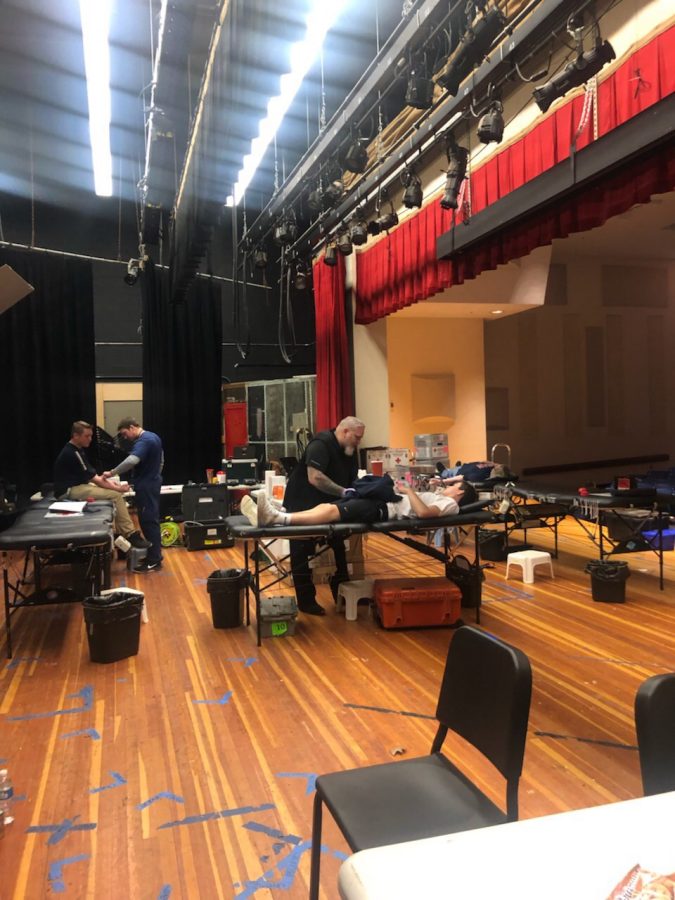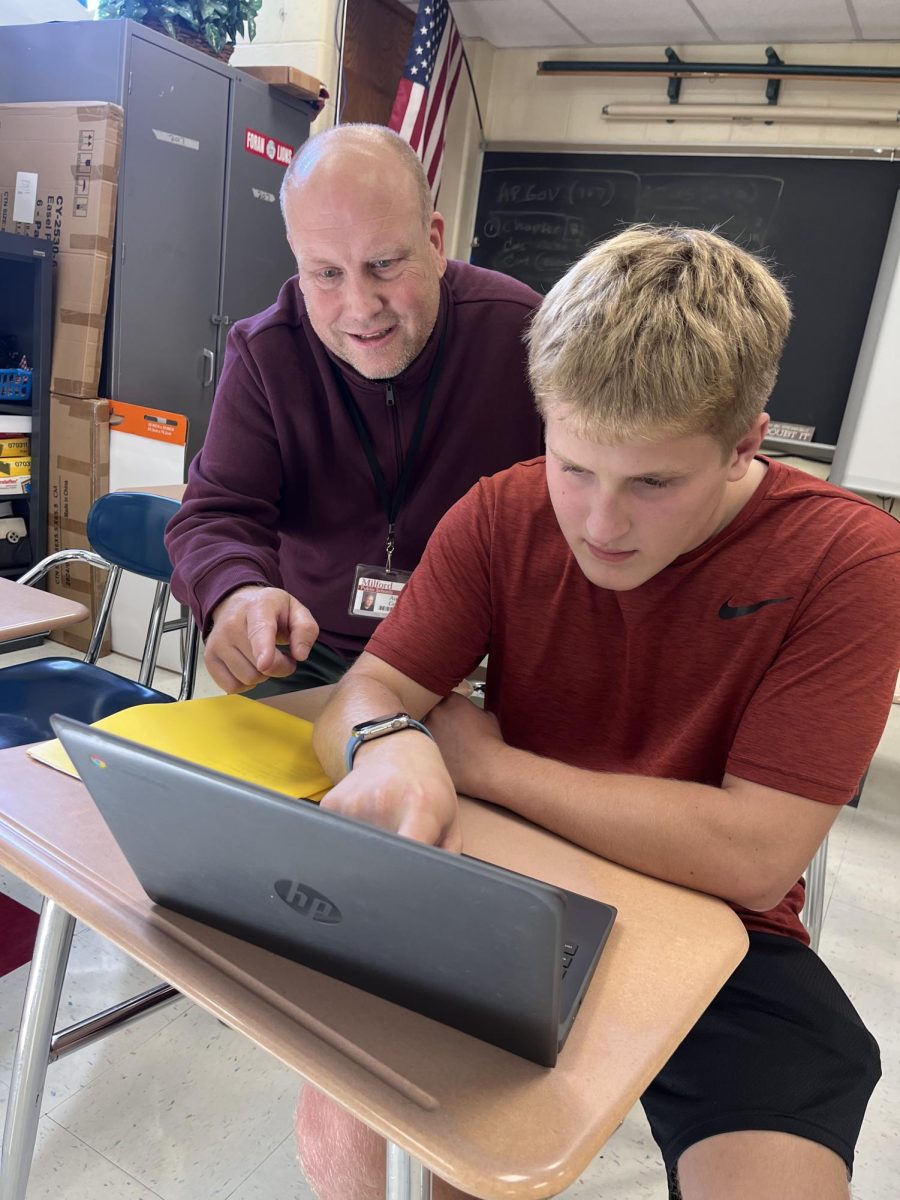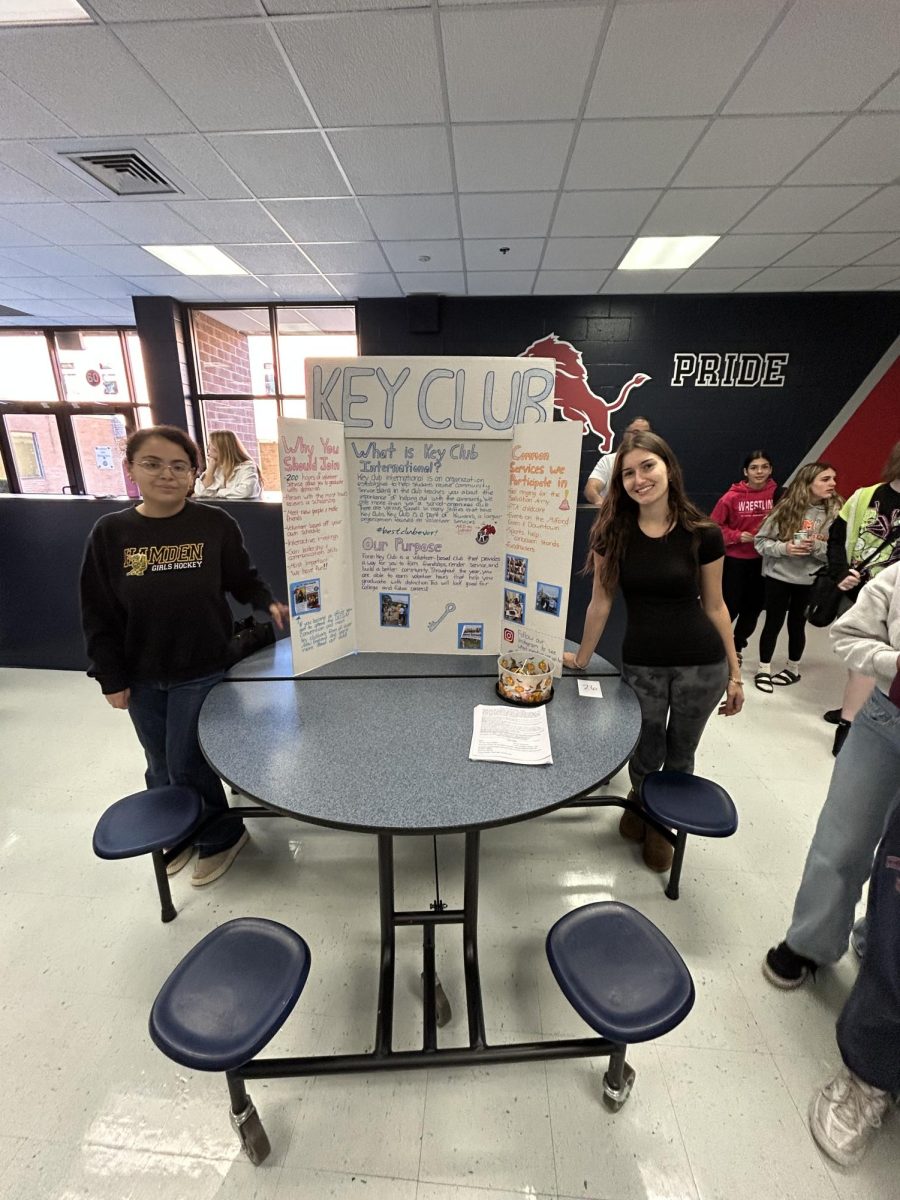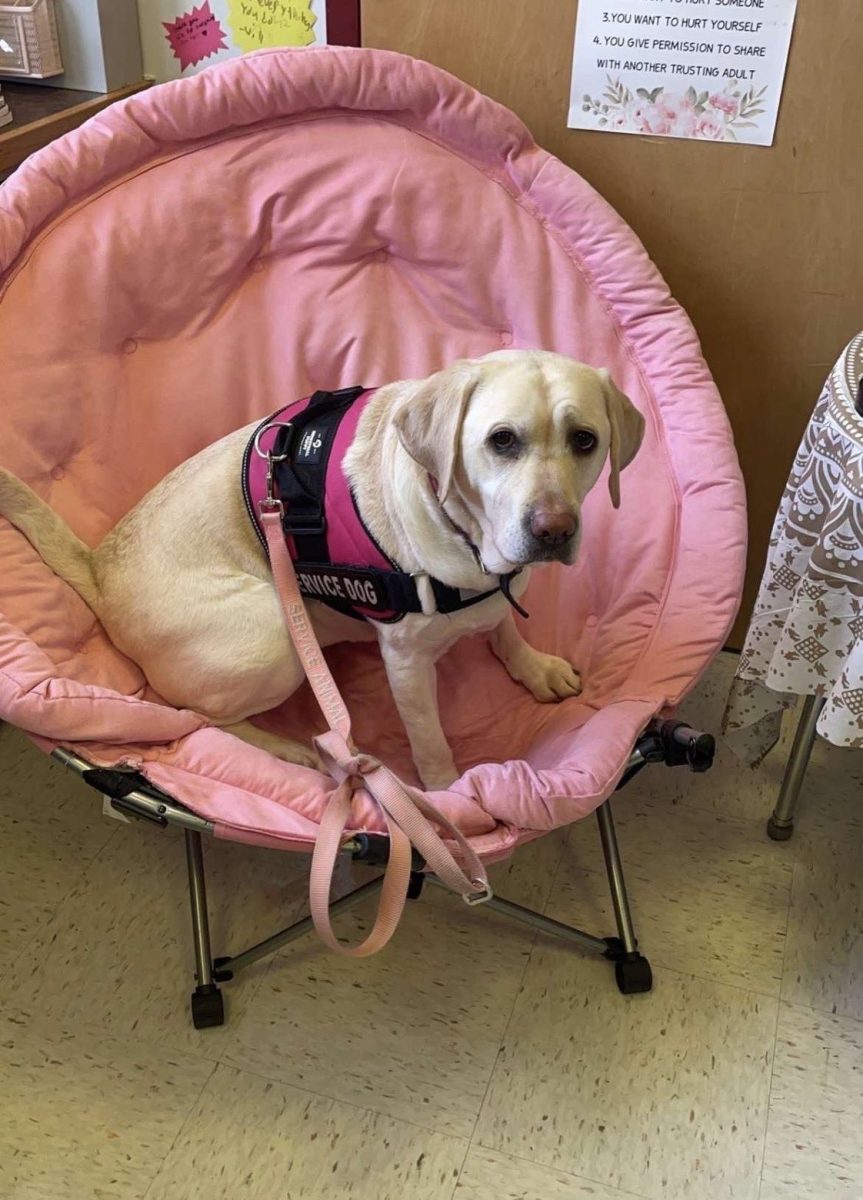Amy Alicki
Staff Writer

Friday, May 3, Foran’s Key Club ran yet another blood drive in the auditorium. For decades the club has run blood drives to give back to our community. Key Club is run by one of Foran’s PE teachers, Kathy Ganun, and the club’s student officers help alongside her. Senior Hannah Kressen, and juniors Grace Lavalle, Clea O’Neil, and Jordan MacDonald, Key Club officers who worked with GaNun to work the blood drive and make it happen.
On Friday, the members and GaNun started to set up at 6:30 AM for an hour before the drive started at 7:30 AM, just about the time school begins. The drive runs almost all school day to end at 12:30, giving the club time to take down everything in the auditorium.
They finished up a half hour after school ends, at 2:30. Although It doesn’t seem like a busy day, the members and adviser worked hard to make this happen and it took months in advance to put on. For a whole class cycle members volunteer during lunch to recruit students to donate blood.
This year, 28 of Foran’s students and faculty donated blood. One donation saves three lives. The blood shelves were very low this year and the Red Cross told the club it counts on school blood drives. “Our Red Cross Supervisor told me that two other schools cancelled their upcoming blood drives on the day of ours. She said that I do a great job promoting the importance of giving blood,” says Ganun. Giving blood is necessary and requirements about donating are available online https://www.redcross.org/give-blood.html.
According to the Red Cross website:
- Approximately 36,000 units of red blood cells are needed every day in the U.S.
- Nearly 7,000 units of platelets and 10,000 units of plasma are needed daily in the U.S.
- Nearly 21 million blood components are transfused each year in the U.S.
- The average red blood cell transfusion is approximately 3 units.
The blood type most often requested by hospitals is type O.
Sickle cell disease affects 90,000 to 100,000 people in the U.S. About 1,000 babies are born with the disease each year. Sickle cell patients can require blood transfusions throughout their lives.
According to the American Cancer Society, about 1.7 million people are expected to be diagnosed with cancer in 2017. Many of them will need blood, sometimes daily, during their chemotherapy treatment.
A single car accident victim can require as many as 100 pints of blood.








